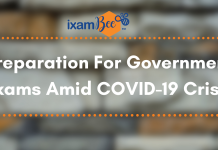As a premier bank in India, the National Bank for Agriculture and Rural Development (NABARD) offers candidates a unique opportunity to contribute to the regulation of various regional banks nationwide. Achieving success in the NABARD Grade A exam is a matter of great pride and prestige for many aspirants. However, this feat is not easily attainable and necessitates dedication, hard work, and meticulous planning.
With Phase I of NABARD Grade A done, aspirants need to push their focus to the NABARD Grade A Phase 2 Exam. Only those candidates who clear Phase I can get a chance to apear for Phase 2 which is extremely important. Hence, aspirants are strongly advised to gain comprehensive knowledge about the essential aspects of the NABARD Grade A examination, especially when the NABARD Grade A notification is released.
To increase their chances of success, candidates should thoroughly understand the NABARD Grade A exam patterns, be well-versed in the NABARD Grade A syllabus, and devise a well-structured preparation strategy.

Furthermore, selecting appropriate study materials to cover the NABARD Grade A syllabus effectively and using mock tests for self-assessment is imperative. Preparing for the NABARD Grade A Phase 2 is a crucial step in the selection process for this prestigious position.
Understanding NABARD GRADE A Phase 2 Exam
Phase 2 of the NABARD Grade A examination consists of three papers: General English, Economic and Social Issues, and an Optional Subject. Understanding the exam pattern, covering the syllabus comprehensively, and developing a structured study plan are essential to succeed. Additionally, practicing the NABARD Grade A Phase 2 previous years’ papers, improving writing skills, and choosing your optional subject wisely is vital for success in this phase. NABARD Grade A Phase 2 is a challenging examination that assesses your knowledge, analytical skills, and communication abilities.
The Phase 2 papers demand a thorough understanding of Economic and Social Issues, proficiency in the English language, and a strong command of your chosen optional subject. With an effective study plan, consistent practice, and a strategic approach, you can navigate this phase successfully, moving one step closer to securing a prestigious Grade A officer position with NABARD. In this comprehensive guide, we will delve into how to prepare effectively for each of the Phase 2 papers, providing you with the insights and strategies you need to excel.
NABARD Grade A Phase 2 Eligibility
The NABARD Grade A Phase 2 eligibility criteria require candidates to clear the Phase 1 (Preliminary) examination successfully. They should also hold a bachelor’s degree with the specified minimum educational qualifications based on their chosen post. Additionally, candidates must meet age, nationality, and other relevant criteria to qualify for Phase 2. For more detailed information on the NABARD Grade A eligibility criteria, you can take a look at our information on the same.
Exam Pattern for the NABARD Grade A Phase 2 Exam
Before we explore the preparation strategy for the NABARD Grade A Exam, we must grasp the scope of topics that aspirants must encompass. The total duration of the exam comprises seven distinct sections containing 200 questions, each carrying one mark, summing up to 200 marks. Look at the table below for a comprehensive understanding of the same.
| Subject | Type of Paper | No of Questions | Marks | Duration |
| General English | Online Descriptive (Answers to be typed) | 3 | 100 | 90 Minutes |
Economic and Social Issues and Agriculture & Rural Development | Objective | 30 | 50 | 30 Minutes |
| Descriptive (Answers to be typed in English or Hindi | 4 out of 6 questions to be attempted [2 of 15 marks each and 2 of 10 marks] | 50 | 90 Minutes | |
| Total | 100 (Paper II) | 2 Hours (Paper II) | ||
The NABARD Grade A Phase 2 exam syllabus encompasses different content based on the candidate’s specialization. More information on NABARD Grade A Phase 2 syllabus and exam pattern can be seen on ixamBee.
NABARD Grade A Psychometric Test
After the Mains is conducted, NABARD has introduced a psychometric test to narrow down the most suitable candidates to be selected for the fourth and final phase of the NABARD Grade A recruitment. The psychometric test will be an MCQ of 90 minutes duration. More details on this third stage will be provided to aspirants once they reach this stage of recruitment. Only those aspirants who score the minimum cut-off marks or above in the Main Exam will be shortlisted for interview, provided they appear in the Psychometric Test
Recommended Books for NABARD Grade A Phase 2 Examination
No single book can comprehensively cover all aspects of your NABARD Grade A exam preparation. Each section of the exam has its own distinct characteristics, and with organized research, you’ll discover numerous books that can effectively enhance your preparation. Through this table, you can get a comprehensive idea about some of the books that you can use for preparing for the NABARD Grade A Phase 2 Examination.
| Paper | Book | Author/Publisher |
| Economic and Social Issues | Indian Economy | Uma Kapila or Mishra Puri |
| Indian Economy | Ramesh Singh | |
| Indian Social System | Ram Ahuja / Rawat Publications | |
| Agriculture & Rural Development | Agriculture at a Glance | R K Sharma and S K Bhoi |
| Rural Development | GPH Panel of Experts | |
| Fundamental Of Agriculture Vol 2 | Arun Katyan | |
| A Competitive Book of Agriculture | Nem Raj Sunda | |
| English Awareness | English Grammar & Composition | Wren & Martin |
| Word Power Made Easy | Norman Lewis | |
| Descriptive General English | SP Bakshi |
Strategies to Prepare for NABARD Grade A Phase 2 Examination
Now that you have a detailed understanding of the exam pattern and the syllabus, you need to understand a few strategies that will help you easily prepare for the NABARD Grade A Phase 2 examinations. Take a look at the points given below.
- Understand the Exam Pattern: You should begin your NABARD Grade A Phase 2 exam preparation by thoroughly familiarising yourself with the updated exam pattern. This will provide insights into the marking scheme, section names, time allocation, total questions, and more. Through this, you can structure your study approach effectively for better exam performance. Understanding the pattern will also help you identify your strengths and weaknesses, allowing for a more targeted approach to your study plan.
- Review the Detailed Syllabus: After comprehending the exam pattern, compile a comprehensive list of essential topics from each section within the updated syllabus. Ensure every critical topic is noticed, and prioritize which areas to tackle to streamline your preparation. Access the detailed NABARD Grade A Syllabus for reference. A detailed syllabus review ensures you have a clear roadmap for your study journey and can efficiently allocate your time and resources to cover all necessary topics.
- Analyze Previous Year Papers: NABARD exams often follow a consistent pattern set by the organizing authority. Before diving into your preparation, analyze previous exam papers to gain insights into the types of questions, difficulty levels, and anticipated topics. By studying NABARD Grade A previous years’ papers, you can reduce the likelihood of focusing on the wrong subjects. This analysis will also help you adapt your preparation to the evolving nature of the NABARD Grade A exam.
- Study Previous Years’ Cut-offs: To establish a performance benchmark, examine the NABARD Grade A previous years’ cut-off scores. This will give you a sense of the effort required to qualify for the NABARD Grade A Preliminary exam in the coming year. Understanding the cut-offs can guide your target score and motivate you to perform at your best.
- Identify Key Areas: After reviewing past papers, pinpoint the areas you need to prioritize and those that require further refinement in your preparation. Identifying key topics for NABARD Grade A is paramount for your success. Once you’ve identified these key areas, create a detailed study plan emphasizing them, ensuring you’re well-prepared in these crucial subjects.
- Craft a Study Plan: From the very start of your NABARD Grade A exam preparation, devise a comprehensive study plan and stick to it diligently. This plan should encompass all the subjects and sections that need attention, ensuring every topic or chapter is addressed. The Economic and Social Issues (ESI) and Agriculture and Rural Development (ARD) sections carry significant weightage, so tailor your plan accordingly. A well-structured study plan acts as a roadmap, keeping you on track and accountable throughout your preparation.
- Distribute Time Equitably: Effective time management is crucial, with seven sections to cover. Allocate your time judiciously to each section. Adjust your focus according to your strengths and weaknesses. Make sure to look at all sections, topics, and chapters, regardless of your proficiency. Proper time distribution ensures a balanced and comprehensive understanding of all subjects, increasing your chances of success.
- Utilize Quality Study Material: Acquiring top-notch study material featuring questions aligned with the banking exam level is invaluable. To supplement your preparation, you can explore free mock tests, and study notes on ixambee through the NABARD Grade A Phase 2 Online Course. Quality study material reinforces your understanding of concepts and exposes you to various question patterns, enhancing your readiness for the exam.
- Benefit from Mock Tests: Mock tests are invaluable for assessing your performance thoroughly. They reveal your strengths and weaknesses by pinpointing mistakes. Participating in NABARD Grade A mock tests allows you to learn from previous mistakes and improve your test-taking skills. Regular mock test practice is critical to your preparation strategy, helping you become familiar with the exam environment and sharpen your time management skills.
- Minimize Distractions: To maintain focus, avoid distractions during your study sessions. Limit social activities that might hinder your progress. Creating a dedicated study space and minimizing external distractions can significantly improve your study efficiency and concentration. But it would be best if you didn’t get burned out with rigorous study sessions. Learn to find the balance that will help you focus better.
- Phase 1 as the Gateway: It’s vital to remember that NABARD Grade A Phase 1 serves as your entry pass to the NABARD Grade A Phase 2 exam. Although it is a qualifying examination, cracking it is essential to secure your place in the NABARD Grade A Phase 2. This understanding should motivate you to perform best in the Preliminary exam, as it is the gateway to achieving your dream job as a NABARD Grade A officer.
- Prioritizing Important Topics: To make the best use of your time, identify high-priority topics within each paper based on their weightage in previous exams and their current relevance. In Paper 2 (Economic and Social Issues), topics like inflation, fiscal policy, economic reforms, and social issues like poverty, education, and healthcare are often emphasized. At the same time, Paper 3 (Agriculture and Rural Development) focuses on topics such as agricultural productivity, rural credit, and government schemes for rural development. Understand the recent policy changes and government initiatives in these areas, as questions related to them are frequently included in the exam. Practice writing answers and essays on these critical topics to build proficiency.
- Time Management and Writing Skills: Effective time management is crucial for success in the Phase 2 Exam. Develop time management skills to complete both papers within the allotted time. Practice writing essays and reports under timed conditions to enhance your writing speed and accuracy. Maintain a clear and organized structure in your answers with a proper introduction, body, and conclusion. Use relevant data, facts, and examples to support your arguments and viewpoints. Lastly, proofread your answers for grammar, spelling, and clarity to ensure your responses are well-presented.
- Revision and Self-Assessment: Make time for thorough revision as the exam date approaches. Create concise notes or flashcards to help you revise quickly and effectively. Self-assess your performance by reviewing your previous essays and reports to identify areas where you can improve. Seek feedback from mentors or peers on your writing style and content. Lastly, stay updated with current affairs and developments in the relevant fields, as this knowledge can be crucial in producing well-informed answers during the exam.
Preparation Tips for NABARD Grade A Phase 2 Exams
1. General English:
- General English is a crucial section in the NABARD Grade A Phase 2 Exam.
- Focus on building strong vocabulary, improving comprehension skills, and enhancing grammar and syntax.
- Regular reading of newspapers and practicing essays and comprehension passages can significantly boost your performance in this section.
- Work on time management during the exam to ensure you complete this section efficiently.
2. Economic and Social Issues:
- Economic and Social Issues form the backbone of Paper 2 in the Phase 2 Exam.
- Stay updated with current economic developments and government policies to excel in this section.
- Understand key concepts such as fiscal policy, inflation, economic reforms, and social issues like poverty and healthcare.
- Analyze and practice solving case studies and scenarios related to these topics to enhance your problem-solving skills.
3. Agriculture and Rural Development:
- Paper 3, focusing on Agriculture and Rural Development, is a critical section for NABARD aspirants.
- Ensure a firm grasp of agricultural concepts, rural credit systems, and government schemes for rural development.
- Familiarize yourself with recent agricultural innovations and technological advancements.
- Review current government initiatives and their impact on rural development to provide well-informed answers.
Summing Up
Preparing for the NABARD Grade A Phase 2 Exam requires a well-thought-out strategy that covers a broad range of subjects and skills. You can optimize your study plan by thoroughly understanding the exam pattern and syllabus, prioritizing your weaker areas, and effectively managing your time. Remember to balance your strengths and weaknesses to ensure comprehensive preparation. Additionally, ixamBee offers valuable resources such as mock tests and online classes for those seeking further assistance. These tools can be instrumental in refining your knowledge and enhancing your performance, providing a competitive edge in your NABARD Grade A Phase 2 Exam journey.
At ixamBee, we specialize in providing comprehensive online courses for government exams and online courses for government jobs. Our expertly designed courses for government jobs cater to a wide range of upcoming government exams. Whether you’re preparing for specific courses for government exams or seeking general guidance, ixamBee offers the resources like BeePedia , the previous year papers, SSC CGL, SSC CHSL, SSC MTS and other mock tests to succeed in exams like RBI Grade B, SEBI Grade A, NABARD Grade A, RRB NTPC, SSC MTS, NIACL Assistant, and more.
Also Read
How to Write Descriptive Answers in ESI NABARD Grade A Phase 2 Exam 2025?
Why Should You Prepare for RBI Grade B, NABARD Grade A and SEBI Grade A together?
How To Prepare for NABARD Grade A Exam















